Windows are a crucial part of your home, providing natural light, ventilation, and insulation. But like any other component of your house, they don’t last forever. Knowing when to replace your windows can save you money, improve your home’s energy efficiency, and enhance your comfort. In this blog post, we’ll explore how often windows should be replaced, the signs that it’s time for an upgrade, and factors that affect their lifespan.
How Often Should Windows Be Replaced?
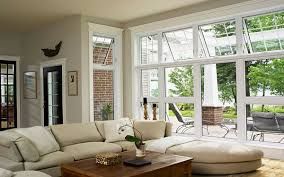
The Average Lifespan of Windows
The lifespan of your windows depends on the material and quality of installation. Here’s a general guideline for how long different types of windows typically last:
Vinyl Windows: 20-40 years
Wood Windows: 15-30 years (with proper maintenance)
Aluminum Windows: 20-30 years
Fiberglass Windows: 30-50 years
Keep in mind that these are estimates. Factors like climate, maintenance, and usage can shorten or extend the lifespan of your windows. Talk to your local window professional about your top choices.
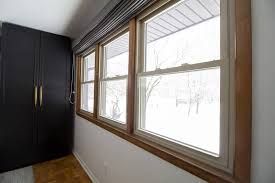
Signs It’s Time to Replace Your Windows
Even if your windows haven’t reached the end of their expected lifespan, certain signs indicate it’s time for a replacement. Look out for:
Drafts and Air Leaks
If you feel drafts or notice air leaks around your windows, it’s a sign that the seals have failed or the frames are warped. This can lead to higher energy bills and reduced comfort.
Difficulty Opening or Closing
Windows that stick, jam, or won’t stay open are not only frustrating but also a safety hazard, especially in case of an emergency.
Condensation Between Panes
Condensation or fogging between the panes of double or triple-pane windows indicates a broken seal. This reduces the window’s energy efficiency and obstructs your view.
Visible Damage
Cracks, rot, warping, or water damage to the frames or sashes are clear signs that your windows need to be replaced.
High Energy Bills
If your heating or cooling costs have increased unexpectedly, your windows may no longer be providing adequate insulation.
Outdated Style
Older windows may not match your home’s current aesthetic or meet modern energy efficiency standards. Upgrading can improve both the look and performance of your home.
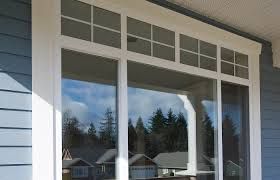
Factors That Affect Window Lifespan
Several factors can influence how long your windows last:
Material
As mentioned earlier, the material of your windows plays a significant role in their durability. Vinyl and fiberglass tend to last longer than wood or aluminum.
Climate
Extreme weather conditions, such as high humidity, heavy rain, or intense sunlight, can accelerate wear and tear on your windows.
Maintenance
Regular maintenance, such as cleaning, painting, and sealing, can extend the life of your windows. Neglecting maintenance can lead to premature failure.
Quality of Installation
Poor installation can shorten the lifespan of even the highest-quality windows. Always hire a reputable contractor to ensure your windows are installed correctly.
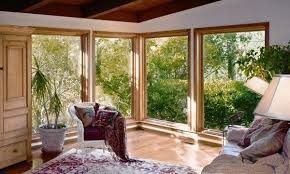
When to Repair vs. Replace
In some cases, you may not need to replace your windows entirely. Here’s when repairing might be a better option:
Minor Damage: Small cracks, broken hardware, or minor seal failures can often be repaired.
Single-Pane Windows: If you have single-pane windows, adding storm windows or weatherstripping can improve their performance without a full replacement.
However, if your windows are old, damaged, or inefficient, replacement is usually the better long-term solution.

Benefits of Replacing Your Windows
Replacing your windows offers several advantages:
Improved Energy Efficiency: New windows with double or triple-pane glass and Low-E coatings can significantly reduce your energy bills.
Enhanced Comfort: Modern windows provide better insulation, reducing drafts and hot/cold spots.
Increased Home Value: New windows can boost your home’s curb appeal and resale value.
Noise Reduction: Upgrading to windows with thicker glass or soundproofing features can create a quieter living environment.
Low Maintenance: Many modern windows, especially vinyl and fiberglass, require minimal upkeep.
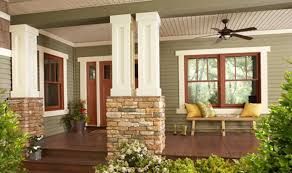
How to Extend the Life of Your Windows
To get the most out of your windows, follow these maintenance tips:
Clean Regularly: Wash the glass and frames to remove dirt and debris.
Inspect for Damage: Check for cracks, rot, or broken seals and address issues promptly.
Repaint or Reseal Wood Frames: If you have wood windows, repaint or reseal them every few years to prevent damage.
Lubricate Moving Parts: Keep hinges, locks, and tracks in good working order with regular lubrication.
So, how often should windows be replaced? While the average lifespan is 20-40 years, the answer depends on the material, climate, and maintenance. If your windows are showing signs of wear, such as drafts, difficulty opening, or visible damage, it’s probably time for an upgrade. Replacing your windows is a smart investment that can improve your home’s energy efficiency, comfort, and value.
If you’re unsure whether it’s time to replace your windows, contact us for a professional inspection. We’ll help you determine the best course of action and provide high-quality replacement windows that meet your needs and budget. Let’s make your home more comfortable and energy-efficient today!
